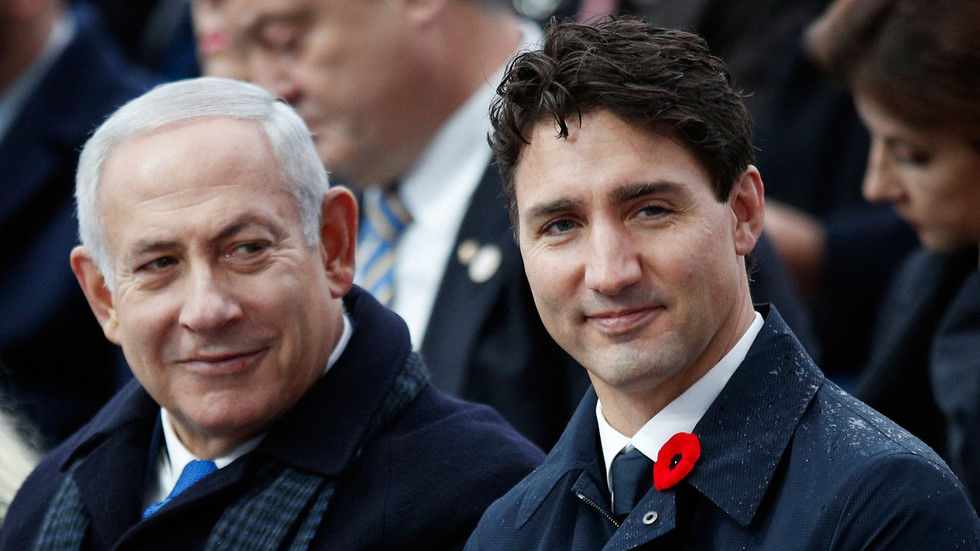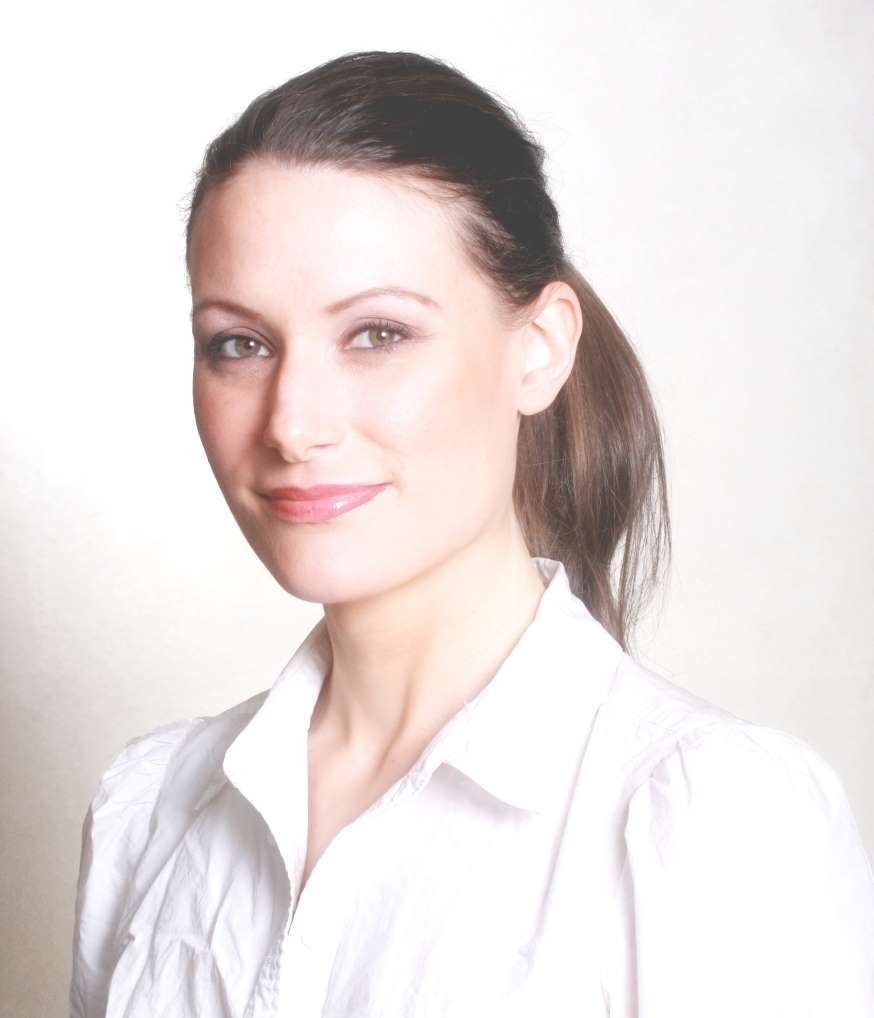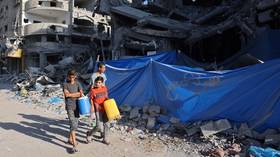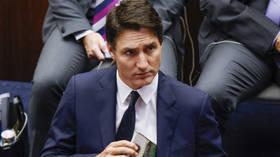
An early plan leaked from the Israeli government suggests Canada as a possible final destination for those displaced by the Gaza war

By Rachel Marsden, a columnist, political strategist, and host of independently produced talk-shows in French and English.
By Rachel Marsden, a columnist, political strategist, and host of independently produced talk-shows in French and English.
rachelmarsden.com

FILE PHOTO: Israeli Prime Minister Benjamin Netanyahu (L) and Canadian Prime Minister Justin Trudeau (R) © Francois Mori / POOL / AP / AFP
Israel’s Intelligence Ministry has come up with a creative solution for dealing with those displaced by the Gaza conflict, of which there are an estimated 1.4 million and counting: Go west — all the way to Canada.
As Gaza residents were being directed by Israel to clear out and move towards the southern border with Egypt – while the IDF pelted the northern part of the enclave, where most Hamas forces are reportedly concentrated, with missiles – one of the big questions some of us asked was where over 2 million Palestinians would possibly go.
Thanks to a leaked Israeli government document, dated October 13 and published by Israeli news site Sicha Mekomit, there’s now some insight into what at least some Israeli government officials have been floating. This paper, which Israeli Prime Minister Benjamin Netanyahu’s office says presents “initial thoughts” that won’t be considered until the war is over, envisions the refugees heading to Egypt first. But, because Egypt has previously refused to absorb Gaza residents, it may ultimately just end up being used as a staging ground for their mass relocation to other countries. The proposal is for Egypt, Turkey, Saudi Arabia, and the United Arab Emirates to at least provide financial support for this mass displacement, if not offer to take in some refugees themselves, either in the short or long term.
But the real kicker is that one particular Western country – way over on the other side of the world from the conflict – is singled out for its “lenient” immigration policy, making it a place where Israeli officials figure the displaced Palestinians could feasibly be resettled. And that country is Canada. Because despite its strict points-based immigration system that selects for potential newcomers based on their skills and education, Canada still clearly has a reputation for being a refugee welcome mat – even though today’s reality is a far cry from this perception.

Read more
Not that our big-mouthed Canadian officials have helped. “To those fleeing persecution, terror & war, Canadians will welcome you, regardless of your faith. Diversity is our strength #WelcomeToCanada,” Prime Minister Justin Trudeau tweeted in January 2017, in reaction to then-US President Donald Trump’s executive order banning refugees from a list of Muslim countries. But it wasn’t long before Trudeau had to send out members of his own administration to explain to these same migrant communities that his tweets were a bit more obtuse than official policy.
Nor does the image of Canada as a freeloader’s paradise jibe with real life upon arrival in the country. By 2019, Canada had welcomed nearly 60,000 Syrian refugees amid the US-backed regime change war against President Bashar Assad. Images abound of Canadian Prime Minister Justin Trudeau handing out winter jackets to arriving families at Toronto’s Pearson airport. “You’re safe at home now,” Trudeau told them. That was back in 2015. Just four years later, some provinces had ditched all aid for immigration and refugee programs and just 24% of male and 8% of female refugees from Syria had found employment, according to government data.
As a Canadian who still spends considerable time in the country, it’s not uncommon to hear from school teachers about how many Syrian children are struggling to integrate into schools and are displaying considerable behavioral troubles.
For every feel-good success story, there’s also one about Syrians returning back to their home country now that the situation there has stabilized with Assad still in power and the US having moved on from intervening in Russian-allied Syria to doing the same over Ukraine.
If Syrians aren’t faring too great in Canada, and are struggling with the end of the initial generous government assistance, then what hope is there for those from Gaza who have spent their lives under blockade? “Some 50 per cent of students (aged 5-17 years) do not achieve their full educational potential, meaning that the psychological impact of hostilities has led to a deterioration in learning outcomes, and difficulties in reading and writing,” according to the United Nations.

Read more
Even among Canadians born and educated in Canada and gainfully employed, there are those struggling to survive with inflation and the current cost of living. And because of Canada’s ongoing housing crisis, with rent and mortgages out of the reach of much of the working class, 44% of Canadians in a recent survey now feel that there’s too much immigration to the country.
So it goes without saying that Israel never bothered asking Palestinians if they want to be displaced to the other side of the planet from their home, but clearly no one in Israel has asked Canadians how they feel, either, about the possibility of serving as a dumping ground for their ethnic cleansing efforts in Gaza. Because, if they had, they’d have realized that Canada was already full. So, who gave them that idea? Did they come up with it on their own? Or is someone in Trudeau’s government actually suggesting that it’s a realistic scenario? There’s been no debate about any such possibility, and until there’s a full discussion about it in Canadian parliament and some official dares to stick his neck out and commit political suicide over the idea, Canadian officials need to tell the Israeli Intelligence Ministry to shove it.
Like its fellow Western allies, Canada’s official position is to support a two-state solution for a Palestinian homeland. Just a few days ago, Trudeau reiterated that “the world and the region needs a peaceful, safe, prosperous, viable Palestinian state alongside a peaceful, prosperous, democratic, safe … Israel.” This means that Gaza residents ultimately get to stay in Gaza, and don’t get offloaded onto other countries in mass displacement just because some folks in Israel may be in favor of using revenge against Hamas as a convenient pretext to wipe Gaza off the map as an independent entity.
At least 10,000 Palestinians have been killed so far amid Israel’s pursuit of security in the wake of the Hamas attacks of October 7th. Neither they – nor Canadians on whom this proposal is offering to unload survivors – should be reduced to being pawns as the proposed plan suggests. Better head back to the drawing board and try coming up with an idea for your own “security” that’s less radical than emptying out an entire state into another.
The statements, views and opinions expressed in this column are solely those of the author and do not necessarily represent those of RT.




